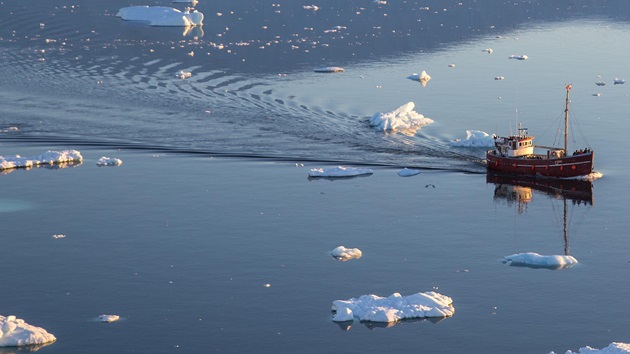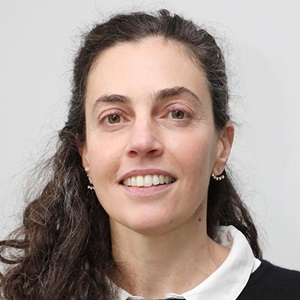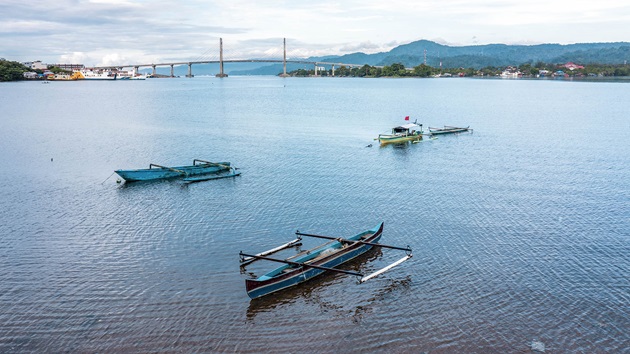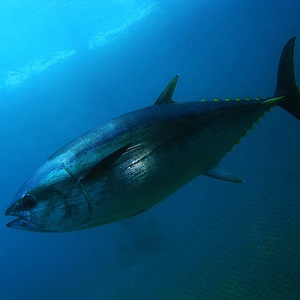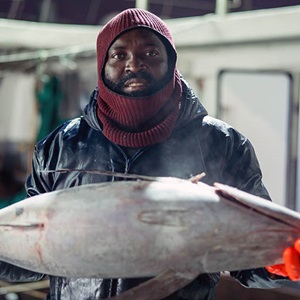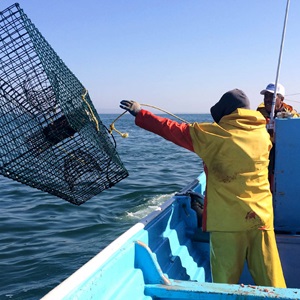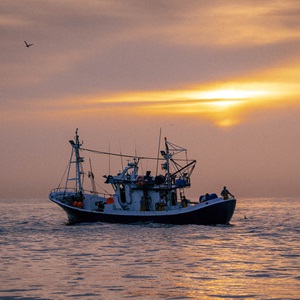The state of the world’s fisheries: Six takeaways
Current research
Managing impacts on vulnerable species
What drives fishery improvements?
Climate change
Completed research
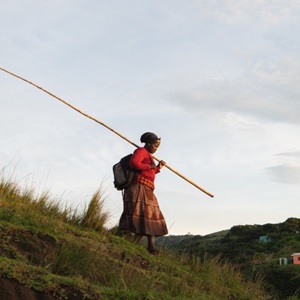
Socioeconomic impacts
Understanding impacts of MSC certification, such as market access and retention, and gaining trust.
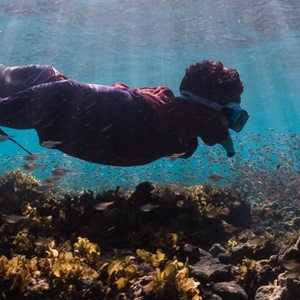
Fishery simulation tool
A user-friendly fishery simulation tool to help data-limited fisheries achieve sustainable practices.
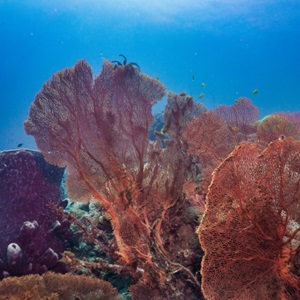
Benthic impacts tool
Developed with Bangor University to help fisheries understand and reduce seafloor impacts.
MSC publications include scientific articles in peer-reviewed journals and specialist reports. Unless marked otherwise, publications have been co-authored by MSC staff: publications marked with a * were supported with MSC funding; publications marked with a ** were commissioned and paid for by the MSC.
2025 |
| Koerner L.M., Palacios-Abrantes J., Novaglio, C., Blanchard, J., Melnychuk M.C., Essington T.E., Everett J.D., Guiet J., Harrison C.S., Heneghan R.F., Currey R.J.C., Jardim, E., Polidoro B., Longo C. (2025) Climate change risks to future sustainable fishing using global seafood ecolabel data Cell Reports Sustainability |
| Melnychuk M.C., Lees S., Veiga P., Rasal J., Baker N., Koerner L., Hively D., Kurota H., de Moor C.L., Pons M., Mace P.M., Parma A.M., Mannini A., Richard Little L., Bensbai J., Muñoz Albero A., Polidoro B., Jardim E., Hilborn R., Longo
C. (2025) Comparing voluntary and government-mandated management measures for meeting sustainable fishing targets, Journal of Environmental Management |
2024 |
| Vogel, J.M., Levine, A., Longo, C., Fujita, R., Alves, C.L., Carroll, G., Craig, J.K., Dancy, K., Errend, M., Essington, T.E., Farchadi, N., Glaser, S., Golden, A.S., Jensen, O.P., LeFlore, M., Mason., J.G., Mills, K.E., Palacios-Abrantes,
J., Rogers, A., Samhouri, J.F., Wabnitz, C.C.C. (2024) Fisheries in flux: Bridging science and policy for climate-resilient management of US fisheries under distributional change,
Marine Policy. |
| Melnychuk, M.C., Lees, S., Atcheson, M., Burns, P., Longo, C., Koerner, L., Polidoro, B., (2024), Rates and drivers of fishery certification and withdrawal from the MSC program, Marine Policy |
| Special issue: The MSC Fisheries Standard Review: Updated best practices for a sustainable seafood future, (2024), Marine Policy |
| Burns, P., Polidoro, B., Jardim, E., McElroy, D., McGregor, E. and Wood, N. (2023) Defining best practice in Global Stakeholder Consultations: Lesson learned from the Marine Stewardship Council’s Fishery Standard Review, Marine Policy |
| Gutteridge, A.N., Bräutigam,A., Dewar, K., Currey, R.J.C. (2024) How are appropriate performance levels developed for MSC certification? A case study assessing shark finning,
Marine Policy |
| Good, S.D., Dewar, K., Burns, P., Sainsbury, K., Phillips, R.A., Wallace, B.P., Fortuna, C., Udyawer, V., Robson, B., Melvin, E.F., Currey, R.J.C. (2024) Adapting the Marine Stewardship Council risk-based framework to estimate impacts on seabirds, marine mammals, marine turtles and sea snakes, Marine Policy |
| Good S.D, McLennan S, Gummery M, Lent R, Essington T.E, Wallace B.P, Phillips R.A, Peatman T, Baker G.B (2024), Updating requirements for Endangered, Threatened and Protected species MSC Fisheries Standard v3.0 to operationalise best practices, Marine Policy |
| Gutteridge, A.N., Melnychuk, M.C., Longo, C., Currey, R.J.C., Jardim, E. (2024), The MSC approach for developing harvest strategies and harvest control rules for Regional Fisheries Management Organisations (RFMOs),
Marine Policy. |
| Koerner, L.M., Melnychuk, M.C., Jardim, E. (2024). Testing the sensitivity of fisheries scores to changes in the MSC Fisheries Standard requirements. Marine Policy. |
2023 |
| Davies, T.K., Quinn, E., Jardim, E. (2023). A novel framework to evaluate the accuracy of information used in MSC fisheries assessments: Development challenges and solutions. Marine Policy. |
| Rasal, J., Melnychuk, M. C., Lejbowicz, A., Montero-Castano, C., Ferber, S. & Longo, C. (2023). Drivers of success, speed and performance in fisheries moving towards Marine Stewardship Council certification. Fish and Fisheries. |
| Jardim, E., & Currey, R. J. C. (2023). The MSC Fisheries Standard Review policy development process. Marine Policy. |
| McLennan, S., Polidoro, B., Huntington, T., Cappell, R., Restrepo, V., Mundnich, K., & Jardim, E. (2023). The new Marine Stewardship Council requirements to improve ghost gear management: Insights from the policy development process. Marine Policy. |
| Moranta, J., Florido-del-Corral, D., López-López, L., Gómez, S., Agujetas, J., Albo-Puigserver, M., Brent, Z. W., Bathily, L., Calvário, R., Cavallé, M., Coll, M., Crane, A., de Oliveira, E. C. L., Ertör,
I., Herrera-Racionero, P., Leitão, F., Miret-Pastor, L., Patraca, B., Ortega, M., … Villasante, S. (2023). Sowing potential transformative changes in the fishing and agrifood systems – Conference report. Marine Policy. |
| Vogel, J. M., Longo, C., Spijkers, J., Palacios-Abrantes, J., Mason, J., Wabnitz, C. C. C., Cheung, W., Sumaila, U. R., Munro, G., Glaser, S., Bell, J., Tian, Y., Shackell, N. L., Selig, E. R., le Billon, P., Watson, J. R., Hendrix, C., Pinsky,
M. L., van Putten, I., … Fujita, R. (2023). Drivers of conflict and resilience in shifting transboundary fisheries. Marine Policy. |
| Palacios-Abrantes, J., Crosson, S., Dumas, C., Fujita, R., Levine, A., Longo, C., & Jensen, O. P. (2023). Quantifying fish range shifts across poorly defined management boundaries. PloS one. |
| Carruthers, T. R., Huynh, Q. C., Hordyk, A. R., Newman, D., Smith, A. D. M., Sainsbury, K. J., Stokes, K., Morison, A., Agnew, D., Parma, A., Sobrino, I., & Longo, C. (2023). Method evaluation and risk assessment: A framework for evaluating management strategies for data-limited fisheries. Fish and Fisheries. |
| Ainsworth, G. B., Pita, P., Garcia Rodrigues, J., Pita, C., Roumbedakis, K., Fonseca, T., Castelo, D., Longo, C., Power, A. M., Pierce, G. J., & Villasante, S. (2023). Disentangling global market drivers for cephalopods to foster transformations towards sustainable seafood systems. People and Nature. |
| Hiddink, J. G., Evans, L., Gilmour, F., Lourenço, G., McLennan, S., Quinn, E., & Shepperson, J. (2023). The effect of habitat and fishing-effort data resolution on the outcome of seabed status assessment in bottom trawl fisheries. Fisheries Research. |
| Ainsworth, G. B., Pita, P., Pita, C., Roumbedakis, K., Pierce, G. J., Longo, C., Verutes, G., Fonseca, T., Castelo, D., Montero-Castaño, C., Valeiras, J., Rocha, F., García-de-la-Fuente, L., Acuña, J. L., del Pino Fernández
Rueda, M., Fabregat, A. G., Martín-Aristín, A., & Villasante, S. (2023). Identifying sustainability priorities among value chain actors in artisanal common octopus fisheries. Reviews in Fish Biology and Fisheries. |
| Good, S. D., Gummery, M., McLennan, S., Dewar, K., Votier, S. C., & Phillips, R. A. (2023). Evaluating the appropriateness of risk-based approaches to assess the sustainability of fishery impacts on seabirds. Endangered Species Research. |
| Oloruntuyi, O., Barendse, J., Marriott, M., Gordon, A. K., & Montero-Castaño, C. (2023). Pathway to sustainability: the Marine Stewardship Council certification standard as an improvement framework for African fisheries. Frontiers in Marine Science. |
| Lees, S., Longo, C., Melnychuk, M. C., Burns, P., & Polidoro, B. (2023). Corrected numbers and assumptions for understanding MSC certified fishery withdrawals: Commentary on Pierucci et al. Marine Policy. |
2022 |
| *Medellín–Ortiz, A., Montaño–Moctezuma, G., Álvarez–Flores, C., Santamaría-del-Ángel, E., García–Nava, H., Beas–Luna, R., & Cavanaugh, K. (2022). Understanding the impact of environmental variability and fisheries on the red sea urchin population in Baja California. Frontiers in Marine Science. |
| *Merkel, F. R., Post, S., Frederiksen, M., Bak-Jensen, Z., Nielsen, J., & Hedeholm, R. B. (2022). Bycatch in the West Greenland lumpfish fishery, with particular focus on the common eider population. Marine Ecology Progress Series. |
| Melnychuk, M. C., Veneziano, A., Lees, S., Rasal, J., Koerner, L. M., Hair, P., Costalago, D., Hively, D., Jardim, E., & Longo, C. (2022). Wild-caught fish populations targeted by MSC-certified fisheries have higher relative abundance than non-MSC populations. Frontiers in Marine Science. |
| Tindall, C., Oloruntuyi, O., Lees, S., Longo, C. S., Schley, D., & Currey, R. J. C. (2022). Illuminating the mechanisms to mitigate forced and child labour risks within Marine Stewardship Council certified fisheries. Marine Policy. |
| Goethel, D. R., Omori, K. L., Punt, A. E., Lynch, P. D., Berger, A. M., de Moor, C. L., Plagányi, É. E., Cope, J. M., Dowling, N. A., McGarvey, R., Preece, A. L., Thorson, J. T., Chaloupka, M., Gaichas, S., Gilman, E., Hesp,
S. A., Longo, C., Yao, N., & Methot, R. D. (2022). Oceans of plenty? Challenges, advancements, and future directions for the provision of evidence-based fisheries management advice. Reviews in Fish Biology and Fisheries. |
| Bennington, S., Guerra, M., Johnston, D., Currey, R., Brough, T., Corne, C., Johnson, D., Henderson, S., Slooten, E., Dawson, S., & Rayment, W. (2023). Decadal stability in the distribution of bottlenose dolphins in Dusky Sound/Tamatea, New Zealand. New Zealand Journal of Marine and Freshwater Research. |
2021 |
| **Anderson, C. M. Himes-Cornell, A., Pita, Cristina, Arton, A., Favret, M. Averill, D., Stohs, S. Longo, C. S. (2021) Social and economic outcomes of fisheries certification: Characterizing pathways of change in canned fish markets. Frontiers in Marine Science. |
| *Oyanedel, R., Gelcich, S., Mathieu, E., Milner-Gulland, E., J. (2021) A dynamic simulation model to support reduction in illegal trade within legal wildlife markets. Conservation Biology. |
| Cusa, M., St John Glew, K., Trueman, C., Mariani, S., Buckley, L., Neat F., Longo, C. (2021) A future for seafood point-of-origin testing using DNA and stable isotope signatures. Reviews in Fish Biology and Fisheries. |
| *Widyatmoko, C. A., Hardesty, B. D., Wilcox, C. (2021) Detecting anchored fish aggregating devices (AFADs) and estimating use patterns from vessel tracking data in small-scale fisheries. Scientific Reports, 11. |
| Longo, C. S., Buckley, L., Good, S. D., Gorham, T. M., Koerner, L., Lees, S., Liow, S. Y., Oloruntyi, O., Schley, D., Rice, J., Currey, R. J. C. (2021) A Perspective on the Role of Eco-Certification in Eliminating Illegal, Unreported and Unregulated Fishing. Frontiers in Ecology and Evolution. |
| Robinson, L. M., van Putten, I., Cavve, B. S., Longo, C., Watson, M., Bellchambers, L., Fisher, E., Boschetti, F. (2021) Understanding societal approval of the fishing industry and the influence of third-party sustainability certification. Fish and Fisheries. |
*Oyanedel, R., Gelcich, S., Milner-Gulland, E. J (2021) A framework for assessing and intervening in markets driving unsustainable wildlife use. Science of The Total Environment, 792. |
| Nelms, S. E., Alfaro-Shigueto, J. Arnould, J. P. Y., Avila, I. C., Nash, S. B., Campbell, E., Carter, M. I. D., Collins, T., Currey, R. J. C., Domit, C., Franco-Trecu, V., Fuentes, M. M. P. B., Gilman, E., Harcourt, R. G., Hines, E. M., Hoelzel, A. R., Hooker, S. K., Johnston, D. W., Kelkar, N., Kiszka, J. J. Laidre, K. L., Mangel, J. C., Marsh, H., Maxwell, S. M., Onoufiou, A. B., Palacios, D. M., Pierce, G. J., Ponnampalam, L. S., Porter, L. J., Russel, D. J. F., Stockin, K. A., Sutaria, D., Wambiji, N., Weir, C. R., Wilson, B., Godley, B. J. (2021). Marine mammal conservation: over the horizon. Endangered Species Research, 44:290-325. |
| Jardin, E., Azevedo, M., Brodziak, J., Brooks, E. N., Johnson, K. F., Klibansky, N., Millar, C. P., Minto, C. Mosqueria, L., Mash, R. D. M., Vasilakopoulos, P. Wells, B. K. (2021). Operationalizing ensemble models for scientific advice to fisheries management. ICES Journal of Marine Science. |
2020 |
| Arton, A., Leiman, A., Petrokofsky, G., Toonen, H. and Longo, C.S., 2020. What do we know about the impacts of the Marine Stewardship Council seafood ecolabelling program? A systematic map. Environmental Evidence, 9, pp.1-20 |
**Brautigam, A. 2020. Best Practice in the Prevention of Shark Finning. Pp. 1-25 |
Free, C., Jensen, O., Anderson, S.C., Gutierrez, N.L., Kleisner, K.M., Longo, C., Minto, C., Osio, G.C., Walsh, J.C. 2020. Blood from a stone: Performance of catch-only methods in estimating stock biomass status. Fisheries Research, 223: 105452. |
Good, S.D., Baker, G.B., Gummery, M., Votier, S.C. and Phillips, R.A., 2020. National Plans of Action (NPOAs) for reducing seabird bycatch: Developing best practice for assessing and managing fisheries impacts. Biological Conservation, 247, p.108592. |
*Haas, B., 2020. Tuna management in action: assessing the contribution of the WCPFC to the SDGs. Australian Journal of Maritime & Ocean Affairs, 12(1), pp.42-47. |
Handley, J.M., Pearmain, E.J., Oppel, S., Carneiro, A.P., Hazin, C., Phillips, R.A., Ratcliffe, N., Staniland, I.J., Clay, T.A., Hall, J. and Scheffer, A., 2020. Evaluating the effectiveness of a large multi‐use MPA in protecting Key Biodiversity Areas for marine predators. Diversity and Distributions, 26(6), pp.715-729. |
*Méndez-Medina, C., Schmook, B., Basurto, X., Fulton, S. and Espinoza-Tenorio, A., 2020. Achieving coordination of decentralized fisheries governance through collaborative arrangements: A case study of the Sian Ka'an Biosphere Reserve in Mexico. Marine Policy, 117, p.103939. |
*Oyanedel, R., Gelcich, S. and Milner‐Gulland, E.J., 2020. Motivations for (non‐) compliance with conservation rules by small‐scale resource users. Conservation Letters, p.e12725. |
*Oyanedel, R., Gelcich, S. and Milner‐Gulland, E.J., 2020. A synthesis of (non‐) compliance theories with applications to small‐scale fisheries research and practice. Fish and Fisheries. |
van Putten, I., Longo, C., Arton, A., Watson, M., Anderson, C.M., Himes-Cornell, A., Obregón, C., Robinson, L. and van Steveninck, T., 2020. Shifting focus: The impacts of sustainable seafood certification. PloS one, 15(5), p.e0233237. |
2019 |
Barendse, J., Roel, A., Longo, C., Andriessen, L., Webster, L.M., Ogden, R. and Neat, F., 2019. DNA barcoding validates species labelling of certified seafood. Current Biology, 29(6), pp.R198-R199. |
Erickson, L.E., Snow, S., Uddin, M. and Savoie, G.M., 2019. The need for a code of professional ethics for marine conservation communicators. Frontiers in Marine Science, 6, p.304. |
*Kakai, T.M., 2019. Assessing the effectiveness of LED lights for the reduction of sea turtle bycatch in an artisanal gillnet fishery-a case study from the north coast of Kenya. Western Indian Ocean Journal of Marine Science, 18(2), pp.37-44. |
2018 |
Barendse, J., Basson, J., Petersen, S.L. and Sink, K.J., 2018. The sustainable seafood movement viewed as a maturing social-ecological issue using a South African case-study. Ocean & Coastal Management, 151, pp.178-192. |
*Christie, L., 2018. Understanding how sea ice influences Arctic deep-water food webs across a latitudinal gradient. Arctic, 71(4), pp.467-472. |
Jarre, A., Shannon, L.J., Cooper, R., Duggan, G.L., Gammage, L.C., Lockerbie, E.M., McGregor, E.S., Ragaller, S.M., Visser, N., Ward, C. and Watermeyer, K.E., 2018. Untangling a Gordian knot that must not be cut: Social-ecological systems research for management of southern Benguela fisheries. Journal of Marine Systems, 188, pp.149-159. |
Komives, K., 2019. Conservation impacts of voluntary sustainability standards: how has our understanding changed since the 2012 publication of “Toward sustainability: the roles and limitations of certification? Washington, DC; 2018. |
*Mullins, R.B., McKeown, N.J., Sauer, W.H. and Shaw, P.W., 2018. Genomic analysis reveals multiple mismatches between biological and management units in yellowfin tuna (Thunnus albacares). ICES Journal of Marine Science, 75(6), pp.2145-2152. |
2017 |
| Longo, C.S., Frazier, M., Doney, S.C., Rheuban, J.E., Humberstone, J.M. and Halpern, B.S., 2017. Using the ocean health index to identify opportunities and challenges to improving southern ocean ecosystem health. Frontiers in Marine Science, 4, p.20. |
2016 |
Anderson, S.C., Cooper, A.B., Jensen, O.P., Minto, C., Thorson, J.T., Walsh, J.C., Afflerbach, J., Dickey‐Collas, M., Kleisner, K.M., Longo, C. and Osio, G.C., 2017. Improving estimates of population status and trend with superensemble models. Fish and Fisheries, 18(4), pp.732-741. |
Brown, S., Agnew, D.J. and Martin, W., 2016. On the road to fisheries certification: The value of the Objections Procedure in achieving the MSC sustainability standard. Fisheries Research, 182, pp.136-148. |
Fogarty, M.J., Rosenberg, A.A., Cooper, A.B., Dickey-Collas, M., Fulton, E.A., Gutiérrez, N.L., Hyde, K.J., Kleisner, K.M., Kristiansen, T., Longo, C. and Minte-Vera, C.V., 2016. Fishery production potential of large marine ecosystems: A prototype analysis. Environ
Dev, 17, pp.211-219. |
*Gonzáles-Andrés, C., FM Lopes, P., Cortés, J., Sánchez-Lizaso, J.L. and Pennino, M.G., 2016. Abundance and distribution patterns of Thunnus albacares in Isla del Coco National Park through predictive habitat suitability models. Plos one, 11(12), p.e0168212. |
2015 |
Barendse, J. and Francis, J., 2015. Towards a standard nomenclature for seafood species to promote more sustainable seafood trade in South Africa. Marine policy, 53, pp.180-187. |
Blackmore, E., Norbury, H., Mohammed, E.Y., Cavicchi, S.B. and Wakeford, R., 2015. WHAT'S THE CATCH?: Lessons from and Prospects for Marine Stewardship Council Certification in Developing Countries. International Institute for Environment and Development. |
Pérez-Ramírez, M., Castrejón, M., Gutiérrez, N.L. and Defeo, O., 2016. The Marine Stewardship Council certification in Latin America and the Caribbean: A review of experiences, potentials and pitfalls. Fisheries Research, 182, pp.50-58. |
2014 |
Agnew, D.J., Gutiérrez, N.L., Stern-Pirlot, A. and Hoggarth, D.D., 2014. The MSC experience: developing an operational certification standard and a market incentive to improve fishery sustainability. ICES Journal of Marine Science, 71(2), pp.216-225. |
2013 |
Agnew, D.J., Gutiérrez, N.L., Stern-Pirlot, A., Smith, A.D., Zimmermann, C. and Sainsbury, K., 2013. Rebuttal to Froese and Proelss “Evaluation and legal assessment of certified seafood”. Marine Policy, 38, pp.551-553. |
Gutierrez, N.L. and Agnew, D.J., 2013. MSC objection process improves fishery certification assessments: a comment to Christian et al.(2013). Biological Conservation, (165), pp.212-213. |
2012 |
Gutierrez, N.L., Valencia, S.R., Branch, T.A., Agnew, D.J., Baum, J.K., Bianchi, P.L., Cornejo-Donoso, J., Costello, C., Defeo, O., Essington, T.E. and Hilborn, R., 2012. Eco-label conveys reliable information on fish stock health to seafood consumers. PloS one, 7(8), p.e43765. |
Martin, S.M., Cambridge, T.A., Grieve, C., Nimmo, F.M. and Agnew, D.J., 2012. An evaluation of environmental changes within fisheries involved in the Marine Stewardship Council certification scheme. Reviews in Fisheries Science, 20(2), pp.61-69. |
2006-2010 |
Agnew, D., Grieve, C., Orr, P., Parkes, G. and Barker, N., 2006. Environmental benefits resulting from certification against MSC’s Principles and Criteria for Sustainable Fishing. MRAG UK Ltd. and Marine Stewardship Council, London. |
Agnew, D., 2008. Case study 1: toothfish—an MSC certified fishery. Seafood Ecolabelling, Principles and Practice. PP. 247-258 |
Von Der Heyden, S., Barendse, J., Seebregts, A.J. and Matthee, C.A., 2010. Misleading the masses: detection of mislabelled and substituted frozen fish products in South Africa. ICES Journal of Marine Science, 67(1), pp.176-185. |
Howes, R., 2008. The Marine Stewardship Council Programme. Seafood ecolabelling: Principles and practice, pp.81-105. |
Funding research
Over £5.25 million has been dedicated to 144 fisheries and research projects around the world through our Ocean Stewardship Fund.
In 2024, almost £1 million was awarded to research projects that will safeguard fish stocks and minimise fisheries’ impacts on wildlife.
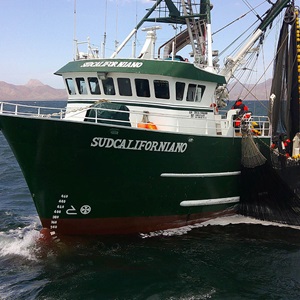
Mexico Pacific sardine: Training observers to minimise fishery impacts
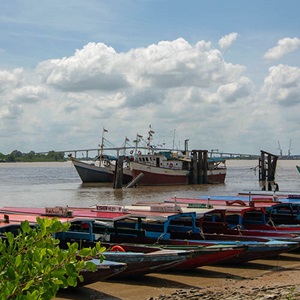
Suriname trawl fishery: Smartphone app to identify protected species
-(1)-500.tmb-thumb300.jpg?Status=Master&Culture=en&sfvrsn=2136ae02_1)
Mexican octopus: Monitoring crab baits and environmental effects
-500.tmb-thumb300.jpg?Status=Master&Culture=en&sfvrsn=ee59935f_1)




